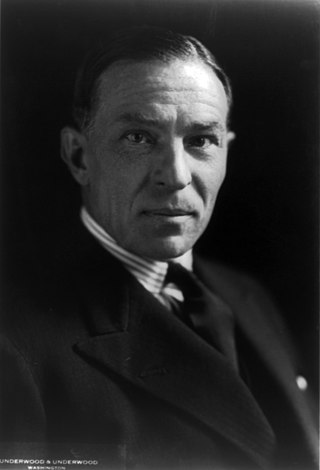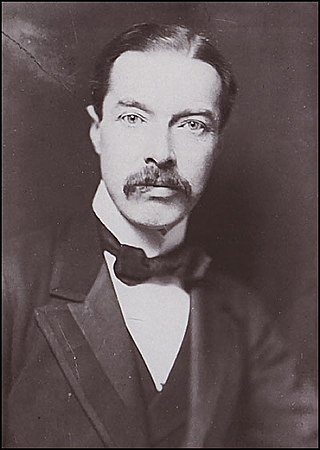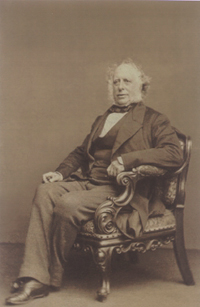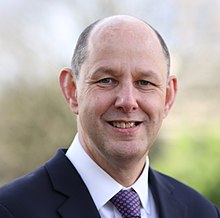
The Joint Intelligence Committee (JIC) is an interagency deliberative body of the United Kingdom responsible for intelligence assessment, coordination, and oversight of the Secret Intelligence Service, Security Service, GCHQ, and Defence Intelligence. The JIC is supported by the Joint Intelligence Organisation under the Cabinet Office.

William Philip Sidney, 1st Viscount De L'Isle,, known as Lord De L'Isle and Dudley between 1945 and 1956, was a British Army officer, politician and Victoria Cross recipient who served as the 15th Governor-General of Australia, in office from 1961 to 1965. He was the last non-Australian to hold the position.

Viscount De L'Isle, of Penshurst in the County of Kent, is a title in the Peerage of the United Kingdom. It was created in 1956 for William Sidney, 6th Baron de L'Isle and Dudley, VC, KG, GCMG, GCVO (1909–1991).

Henry Hardinge, 1st Viscount Hardinge, was a British Army officer and politician. After serving in the Peninsular War and the Waterloo Campaign he became Secretary at War in Wellington's ministry. After a tour as Chief Secretary for Ireland in 1830 he became Secretary at War again in Sir Robert Peel's cabinet. He went on to be Governor-General of India at the time of the First Anglo-Sikh War and then Commander-in-Chief of the Forces during the Crimean War.

The Imperial Order of the Crown of India is an order in the British honours system. The Order was established by Queen Victoria when she became Empress of India in 1878. The Order was open only to women, and no appointments have been made since the Partition of India in 1947. The Order was limited to British princesses, wives or female relatives of Indian princes and the wife or female relatives of any person who held the office of:

Charles Hardinge, 1st Baron Hardinge of Penshurst, was a British diplomat and statesman who served as Viceroy and Governor-General of India from 1910 to 1916.

Robert Gilbert Vansittart, 1st Baron Vansittart,, known as Sir Robert Vansittart between 1929 and 1941, was a senior British diplomat in the period before and during the Second World War. He was Principal Private Secretary to the Prime Minister from 1928 to 1930 and Permanent Under-Secretary at the Foreign Office from 1930 to 1938 and later served as Chief Diplomatic Adviser to the British Government. He is best remembered for his opposition to appeasement and his strong stance against Germany during and after the Second World War. Vansittart was also a published poet, novelist and playwright.

Julian Pauncefote, 1st Baron Pauncefote, known as Sir Julian Pauncefote between 1874 and 1899, was a British barrister, judge and diplomat. He was Permanent Under-Secretary of State for Foreign Affairs between 1882 and 1889 when he was appointed Envoy Extraordinary and Minister Plenipotentiary to the United States, an office that was upgraded to that of Ambassador to the United States in 1893. Elevated to the peerage as Baron Pauncefote in 1899, he died in office in 1902.

Sir Eyre Alexander Barby Wichart Crowe was a British diplomat, an expert on Germany in the Foreign and Commonwealth Office. He is best known for his vehement warning, in 1907, that Germany's expansionism was motivated by animosity towards Britain and should provoke a closer Entente Cordiale between the British Empire and France.

William George Tyrrell, 1st Baron Tyrrell, was a British civil servant and diplomat. He was Permanent Under-Secretary of State for Foreign Affairs between 1925 and 1928 and British Ambassador to France from 1928 to 1934.

Sir Ivone Augustine Kirkpatrick, was a British diplomat who served as the British High Commissioner in Germany after World War II, and as the Permanent Under-Secretary of State for Foreign Affairs, the highest-ranking civil servant in the Foreign Office.

Sydney Arnold, 1st Baron Arnold was a radical British Liberal Party politician who later joined the Labour Party and served as a government minister.

Sir Frederick Currie, 1st Baronet was a British diplomat, who had a distinguished career in the British East India Company and the Indian Civil Service. His posts included Foreign Secretary to the Government of India, Member of the Supreme Council of India, Resident at Lahore and Chairman of the East India Company.

Sir James Sanderson, 1st Baronet was an English banker, a Member of Parliament, an alderman and Lord Mayor of London. He also served as president of Bridewell Hospital, and was a member of William Wilberforce's Proclamation Society for the Discouragement of Vice.
The principal private secretary to the secretary of state for foreign and Commonwealth affairs is the head of the private office of the foreign minister of the His Majesty's Government, and is located in the Foreign and Commonwealth Office Main Building.
The 1902 Birthday Honours were announced on 10 November 1902, to celebrate the birthday of Edward VII the previous day. The list included appointments to various orders and honours of the United Kingdom and the British Empire.

St John the Baptist Church at Penshurst, Kent is a Grade I listed Anglican parish church in the Diocese of Rochester in England. Those buried or commemorated here include Knights, Earls, Viscounts, a Viceroy of India, a Governor-General of Australia, a Private Secretary to two Kings, two Field Marshals and two winners of the Victoria Cross. Through its courtiers, soldiers, statesmen, politicians or priests whose lives appear on memorials or through its changing architecture, brasses, carvings, effigies and windows, the church helps tell a country's story through the eyes of single village.

The 1895 Prime Minister's Resignation Honours were announced in the British national press on 1 July 1895 following the resignation of Lord Rosebery's government on 22 June. The appointments to the Order of the Bath appeared officially in the London Gazette of 2 July.

















